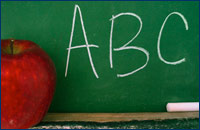The Church (or Mosque?) of AIG
 The Thomas More Law Center has filed a complaint on behalf of a Michigan resident against Treasury Secretary Paulsen and the Board of Governors of the Fed. It alleges that the bailout of AIG violates the Establishment Clause.
The Thomas More Law Center has filed a complaint on behalf of a Michigan resident against Treasury Secretary Paulsen and the Board of Governors of the Fed. It alleges that the bailout of AIG violates the Establishment Clause.
Now, I admit that I have had many misgivings about the ongoing orgy of bailouts, but, I must say, that’s one that did not occur to me. I’ve worried that bailouts distort the market, reward incompetence, create moral hazard, and, in the case of AIG, foot the bill for “team building” junkets. But I hadn’t thought that it established a religion. What gives?
It turns out that AIG has a business unit that offers Shariah compliant financial products. In particular, it offers Takaful lines of insurance which, according to the complaint, invest in no businesses that are haram (or unIslamic). The Shariah compliant business units also pay the zakat, a religious tax that supports only Islamic charities.
Let’s get two things out of the way. There are certain cases that you just know are going nowhere. This is one of them. Second, the complaint is chock full of assertions about the nature of Islam and the role of Shariah compliant financial products in funding terrorism that have nothing to do with whatever legal arguments might be made in favor of the plaintiff’s position.
But even if the case is going nowhere, can we at least discern a semi-plausible argument on its behalf? Let me try so you don’t have to.


